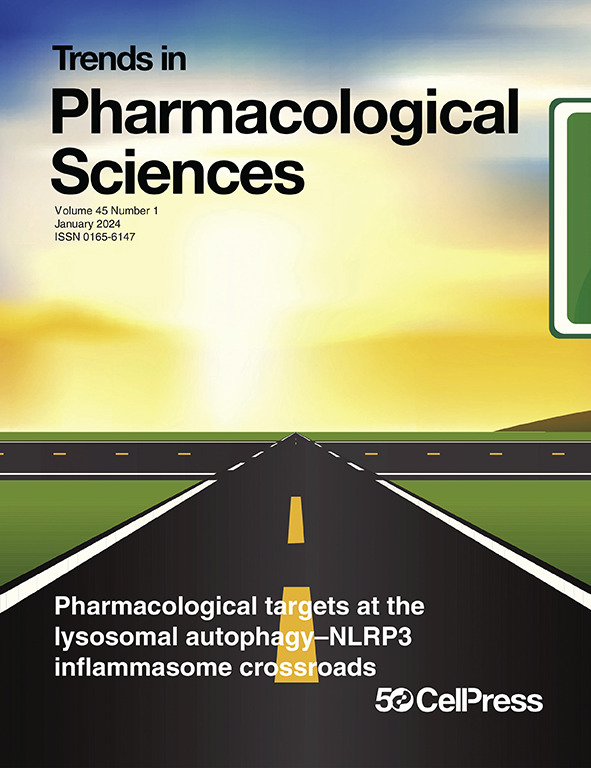挖掘gpcr靶向药物的微生物代谢物。
IF 19.9
1区 医学
Q1 PHARMACOLOGY & PHARMACY
Trends in pharmacological sciences
Pub Date : 2025-07-01
Epub Date: 2025-06-18
DOI:10.1016/j.tips.2025.05.014
引用次数: 0
摘要
G蛋白偶联受体(gpcr)是一个大的受体超家族,对哺乳动物细胞-细胞通讯至关重要,也是常见的药物靶点。一项新的研究表明,人类肠道微生物组可以将gpcr靶向药物代谢成预期的和令人惊讶的代谢物,这对疾病的治疗具有潜在的广泛意义。本文章由计算机程序翻译,如有差异,请以英文原文为准。
Mining microbial metabolites of GPCR-targeted drugs.
G protein-coupled receptors (GPCRs) are a large superfamily of receptors critical for mammalian cell-cell communication and a common drug target. A new study has revealed that the human gut microbiome can metabolize GPCR-targeted drugs into both expected and surprising metabolites, with potentially broad implications for the treatment of disease.
求助全文
通过发布文献求助,成功后即可免费获取论文全文。
去求助
来源期刊
CiteScore
23.90
自引率
0.70%
发文量
132
审稿时长
6-12 weeks
期刊介绍:
Trends in Pharmacological Sciences (TIPS) is a monthly peer-reviewed reviews journal that focuses on a wide range of topics in pharmacology, pharmacy, pharmaceutics, and toxicology. Launched in 1979, TIPS publishes concise articles discussing the latest advancements in pharmacology and therapeutics research.
The journal encourages submissions that align with its core themes while also being open to articles on the biopharma regulatory landscape, science policy and regulation, and bioethics.
Each issue of TIPS provides a platform for experts to share their insights and perspectives on the most exciting developments in the field. Through rigorous peer review, the journal ensures the quality and reliability of published articles.
Authors are invited to contribute articles that contribute to the understanding of pharmacology and its applications in various domains. Whether it's exploring innovative drug therapies or discussing the ethical considerations of pharmaceutical research, TIPS provides a valuable resource for researchers, practitioners, and policymakers in the pharmacological sciences.

 求助内容:
求助内容: 应助结果提醒方式:
应助结果提醒方式:


